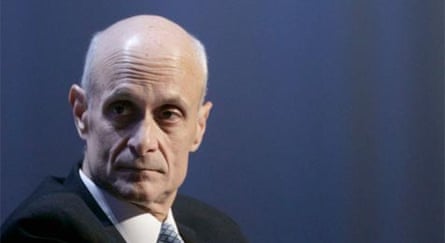
Senior security experts have criticised the west's approach to online threats, suggesting that not enough is being done to stem the growing tide of cyberattacks.
Michael Chertoff, a former secretary at the US Department of Homeland Security, said on Wednesday that current cybersecurity policies were a "recipe for disaster" that could inadvertently encourage a virtual attack equivalent to "the next Pearl Harbour".
Meanwhile former White House counter-terrorism adviser Richard Clarke said that officials continued to underestimate the sheer scale of hacking attacks taking place around the world.
"What's really happening is that every day we are really being attacked, either by the government or by criminal gangs - and there's very little difference between the two - from China and Russia," he said.
"Every major company in the United States and Europe, every major government institution, has been successfully penetrated. Terabytes, petabytes of data have been stolen and our firewalls don't stop it. The day to day espionage is eliminating our economic competitiveness."
The issue of online spying and cyberwarfare has become a hot topic in recent months, following reports of attacks on major institutions and military projects.
In January Google revealed that it, along with a number of leading American companies, had been subjected to a targeted attack over the internet, which investigators believe came from inside China.
The attack - apparently aimed at stealing proprietary information from Google as well as emails belonging to Chinese dissidents - led the internet giant to threaten to lift the censorship of its Chinese search engine in protest.
Speaking at the RSA computer security conference in San Francisco, Chertoff said that tracing the source of hacking strikes was still too difficult – and that computer security was so complex that few felt able to tackle it.
"It's my belief that the solution seems so complicated to the average person, they can't really understand it and they feel disempowered and they ignore it," he said.
Clarke, who became notorious for his damning criticisms of George W Bush in the wake of the September 11 attacks, said that not only was tracing the source of cyberstrikes difficult – but that the nature of online warfare was often lopsided.
"We know North Korea has engaged in cyberattacks on South Korea and the United States," he said. "They launched those attacks from China because they have so little connectivity in their own country. But to say you could have mutually assured destruction? There's nothing to attack in North Korea."
"When we went into Afghanistan in 2001, I asked the National Security Agency to provide a plan to attack also with cyberwar techniques. They came back to me and said 'what the shit are we going to attack?'."
Shortly before Christmas, the White House ended a six-month search to appoint a new cybersecurity adviser by bringing in a former Bush adviser, Howard Schmidt to coordinate America's responses to online attack.
Meanwhile in Britain, the government announced plans last summer to create a new centre aimed at blocking foreign hackers.
But Chertoff said action was too slow and often failed to come up with clear plans and ways to combat online dangers.
"We need a clear policy of retaliation, we need to say what the red lines are - what we do in this case or that case. Hard issues, and we may disagree, but we've got to start talking about this," he said.
Comments (…)
Sign in or create your Guardian account to join the discussion